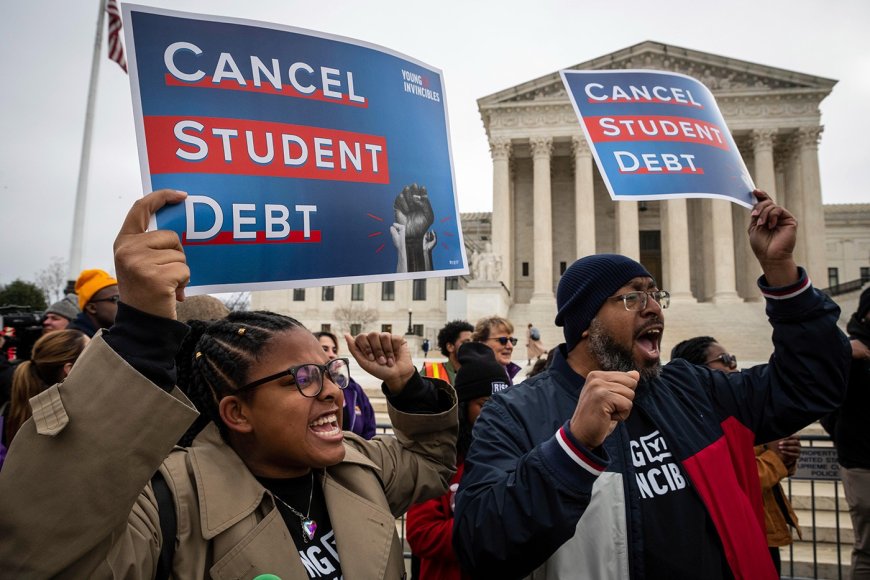US Supreme Court Invalidates Biden Administration's Proposal for Student Loan Debt Forgiveness
US Supreme Court rejects Biden's student loan forgiveness plan, impacting millions of borrowers. Setback for administration's efforts to address student debt crisis.

In a major blow to the Biden administration's ambitious agenda, the US Supreme Court has delivered a ruling against the proposed forgiveness of federally-backed student loan debt. The decision, reached by a 6-3 majority along ideological lines, means that millions of borrowers will have to resume making repayments later this year. The ruling stems from the court's interpretation of the 2003 HEROES Act, which the administration had cited as authorization for the debt relief program during the initial stages of the COVID-19 pandemic.
Ruling and Legal Justification:
Chief Justice John Roberts, writing for the majority, emphasized that the text of the HEROES Act did not grant authority to the Education Secretary for implementing the loan forgiveness program. The court concluded that the law only allowed for modifications to existing student loan programs and did not empower the administration to bring about fundamental changes. This ruling effectively nullifies the administration's plan to forgive student loan debt.
Impact on Borrowers and Repayment Schedule:
The Biden administration had estimated that around 20 million borrowers would have their student loans forgiven under their proposed plan. However, with the court's decision, borrowers who were granted a temporary pause will now need to resume making interest payments from September 1st and regular payments from October. This development is expected to have significant financial implications for those affected, as they will be required to resume repaying their loans according to the original terms.
Financial Costs and Budgetary Considerations:
The forgiveness plan, launched by the Biden administration in October last year, was projected to cost taxpayers between $300 billion and $980 billion over a 10-year period, as estimated by the University of Pennsylvania's Wharton School. The Congressional Budget Office, on the other hand, estimated a cost of $400 billion over the next three decades. These substantial figures had raised concerns about the long-term impact on the federal budget and taxpayers.
Eligibility Criteria and Program Details:
Under the administration's plan, federal loan borrowers with annual incomes under $125,000 (or $250,000 per household) would have been eligible for up to $10,000 in forgiveness. Additionally, borrowers who received Pell Grants were also eligible for an additional $10,000 in relief. The program aimed to alleviate the financial burden on low and middle-income borrowers and provide them with much-needed debt relief.
Legal Challenges and Standing:
The Supreme Court's ruling was prompted by two cases argued in February—Biden v. Nebraska and Department of Education v. Brown—both questioning the administration's legal authority to invoke the HEROES Act for student loan forgiveness. The court determined that Missouri, along with other state attorneys general, had standing to challenge the plan due to the potential impact on their loan revenue streams. However, the court held that the litigants in Department of Education v. Brown lacked standing.
Future Implications:
With the Supreme Court's rejection of the student loan debt forgiveness plan, the Biden administration will need to explore alternative strategies to address the pressing issue of mounting student loan debt. The decision underscores the challenges faced by policymakers in implementing comprehensive student loan reforms and highlights the need for congressional action to enact meaningful changes to the system.
Conclusion:
The US Supreme Court's decision to strike down the Biden administration's student loan debt forgiveness plan has significant implications for millions of borrowers. As they are required to resume loan repayments, the ruling serves as a setback for the administration's efforts to alleviate the financial burden on students and graduates. The decision also highlights the complexities surrounding student loan reform and the ongoing need for comprehensive solutions to address the growing student debt crisis.
Also Read: Debt Deal Showdown: Biden's Saturday Blitz to Secure a Winning Victory in the US

































































